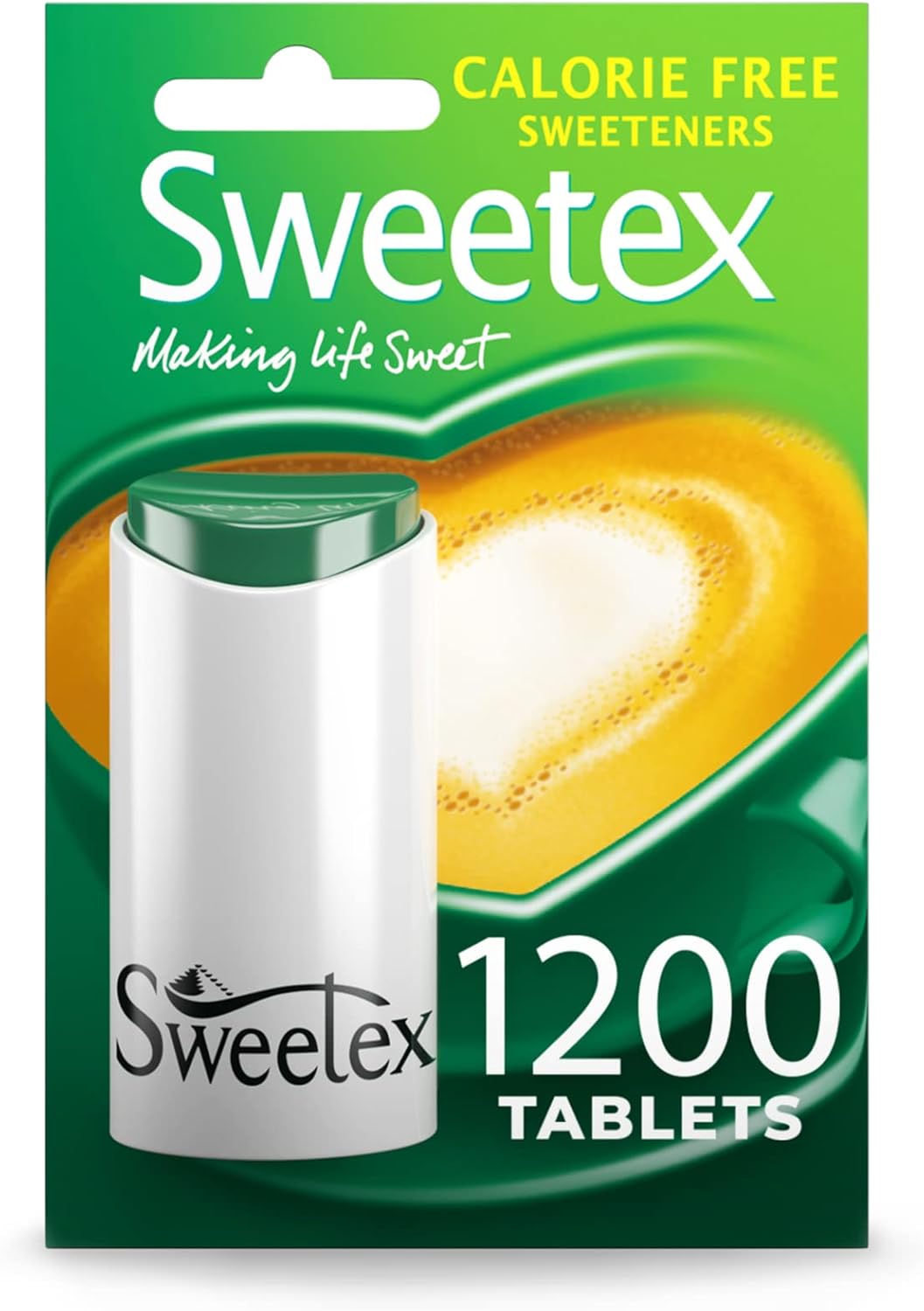About this deal
Glucose tolerance tests were also administered at nine points throughout the study, with the aim to measure how effectively the body was regulating blood sugar levels after consuming glucose.
Aspartame– Aspartame is an artificial sweetener that can be better employed in cold foods. Depending on the type, higher temperatures can decrease its sweetening effects. Popular brands include NutraSweet and Equal. Aspartame has been in the media spotlight recently in regards to its safety. Acesulfame Potassium – Acesulfame potassium (also called acelsufame-K), is another type of low-calorie sweetener suitable for diabetes sufferers. The sweetener can be used in cooking because of its ability to resist heat. Sweet One and Swiss Sweet are both based around this sweetener. Whether they are a helpful addition to our diets depends on your reasons for using them. They are certainly better for our teeth, and for people with diabetes they can provide a sweet taste without affecting blood glucose levels. One of the newest sweeteners on the market is 000 Stevia Sugar, which is a zero calorie, 100% natural sweetener that contains both Stevia and the sugar alcohol Erythritol. Types of low-calorie sweetener Studies have suggested an association between the use of non-nutritive sweeteners and health outcomes (such as body weight, diabetes, cancer, and oral health). However, in a recent comprehensive systematic BMJ review, a broad range of health outcomes were investigated to determine a possible association with non-nutritive sweetener use in a generally healthy population," explains Farzaneh Daghigh, PhD from the Philadelphia College of Osteopathic Medicine. "There was no convincing evidence that non-nutritive sweeteners had any effect in adults on eating behavior, cancer, cardiovascular disease, kidney disease, mood, behavior or cognition. This study found a slight benefit in promoting weight loss and improving fasting blood glucose levels, but only in small studies and over short periods of time. Potential harms from the consumption of non-nutritive sweeteners could not be excluded." Artificial sweeteners can impact your brain.Observational studies like these can only show a link, and more research is needed to understand the relationship between artificial sweeteners and the risk of developing heart and circulatory diseases. Artificial sweeteners can alter your gut microbiota," says Freirich. "As per a recent study in Physiology & Behavior, the consumption of artificial sweeteners alters the gut microbiota and is linked with impaired glucose tolerance. Impaired glucose tolerance raises blood sugars and increases the risk for diabetes." Artificial sweeteners simply love chilling in your gut. The Guardian article clearly describes the approach and key findings of the study and also explains that this type of research can only show a link and cannot exclude unknown factors which may have influenced the findings.
This recent study included around 100,000 people in France, aged 42 on average. Every six months they were asked to record everything they ate and drank over a three-day period. Some low-calorie sweeteners make excellent additions to sweeten your recipes, and this can be a major aid for the diabetic diet. However, cooking with sugar does add more to food than just the sweetness, particularly when it comes to cakes and biscuits.Evidence from short term trials on drinks sweetened with no calorie sweeteners show that when they are consumed instead of sugary drinks, they can support lowering of energy intake and weight gain. There is no evidence sweeteners stimulate appetite in humans. All sweeteners in Great Britain undergo a rigorous safety assessment before they can be used in food and drink. All approved sweeteners are considered a safe and acceptable alternative to using sugar. The law determines how much sweetener can be used and in which products. Health problems such as obesity and tooth decay are linked to the amount of sugar in our diets. We know from our national dietary surveys that most adults in the UK eat too much sugar.
The participants were then followed up for an average of nine years to see whether they had any heart problems or a stroke. They're found in products such as drinks, desserts and ready meals, cakes, chewing gum and toothpaste.
The researchers believe longer studies should now take place to identify if the blood sugar spikes from sweeteners can cause health problems. The Daily Mail gives an accurate description of the study and its key findings. It also helpfully includes comments from an independent expert, helping to give a more balanced overview of the findings. The expert quoted warns that “the researchers suggested 'far too strongly' that artificial sweeteners could be behind poor heart health when its observational evidence is 'weak and potentially flawed'.” High sugar consumption can contribute to a wide range of health problems including obesity, type 2 diabetes and cardiovascular disease.
The charity, Diabetes UK, takes the approach that low-calorie artificial sweeteners can be included as part of the diabetic diet, as long as the food they are eaten with does not itself contain high fat or calorie content. Alongside sucralose and saccharine, the other sweeteners included in the study were aspartame and stevia. Sweeteners can be added to a diabetic meal plan instead of exchanged. Explore low calorie sweeteners: Saccharin is several hundred times sweeter than table sugar but unlike the latter, it has no calories. It typically used to sweeten hot and cold drinks, rather than baked goods or other foods. Is Sweetex suitable for people with diabetes?As part of the evaluation process, the government sets an acceptable daily intake (ADI), which is the maximum amount considered safe to consume each day over the course of your lifetime. While other past studies only looked at artificial sweeteners in drinks, this study included artificial sweeteners added to foods, such as yogurts, as well as “table top” sweeteners, which people added to their own food and drink, so its findings about the relationship between sweeteners and cardiovascular disease may be more accurate.
 Great Deal
Great Deal 